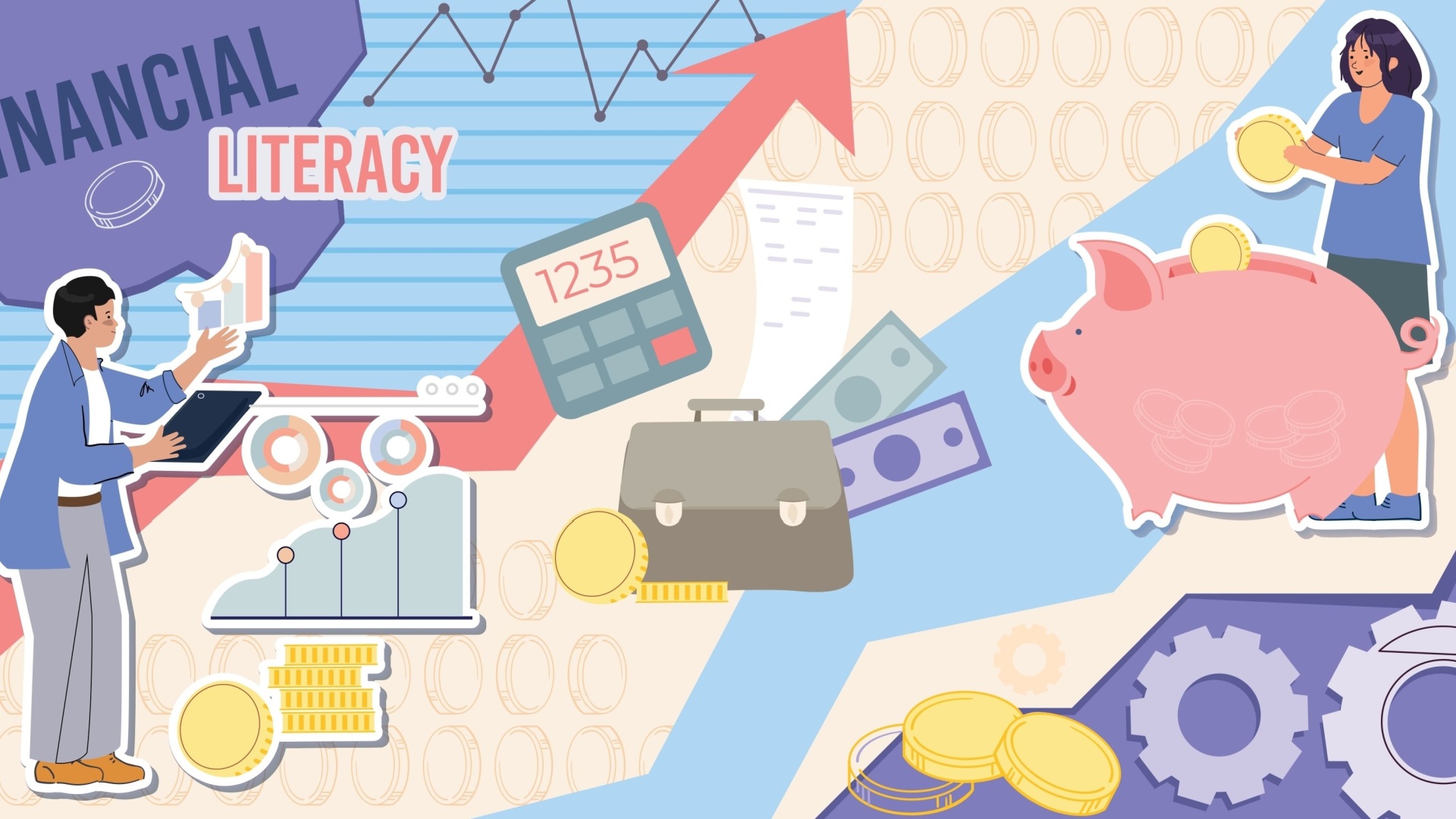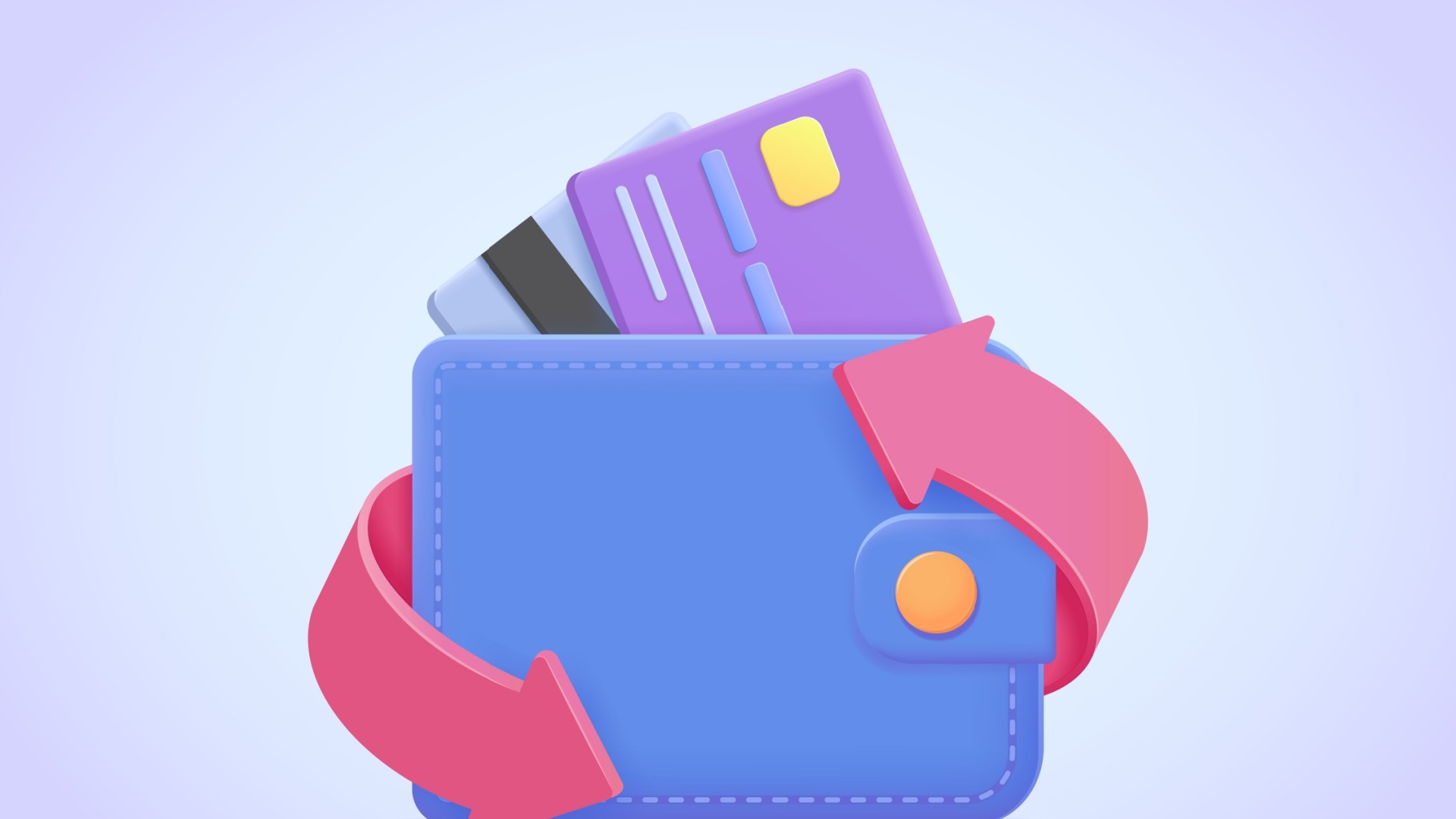The Key Principles of Financial Literacy, or How to Boost Your Income: Advice from Mila Semeshkina
I’ll share a secret: everyone can save, invest, and grow their funds, even with a very modest income! It isn’t essential to cut back on everything; it’s enough to handle money wisely. In this article, I’ll explain how to acquire financial literacy and why managing your income is vital.
Why is financial literacy so important?
Financial literacy embraces knowledge and skills that enhance economic well-being by helping us avoid overspending and increase our income. In other words, a financially literate individual understands how money operates and how to manage it effectively.
I believe that financial literacy is the foundation of mindful decision-making in all areas of life. Financial literacy skills help us recognize and identify our actual needs, as we often overlook the consequences of impulsive purchases and careless spending. It’s important to remember that while our desires are endless, our resources are limited. Financial literacy teaches us to prioritize, analyze our needs, and develop effective financial strategies. This planning enables us to navigate crises, achieve economic goals more swiftly, and save money more effectively. However, this is not always straightforward.
To be deemed financially literate, an individual must possess various skills and abilities. For instance, essential soft skills encompass critical thinking, analytical skills, and drawing accurate conclusions. Hard skills comprise:
- Managing a personal or family budget involves accounting, controlling, analyzing, and planning income from all sources.
- Establishing and pursuing economic objectives.
- Utilizing the essential financial products and instruments.
- Asset management, which includes monitoring savings, investing, paying off loans, and fulfilling other debt obligations.
- Establishing a personal or family financial system, which is a structured economic plan that considers all external and internal factors to achieve your goals.
Each of these skills will enable you to achieve sustainable financial development and stability in the future while avoiding poor economic decisions. Financial literacy is one of the most valuable skills, remains relevant throughout our lives, and should ideally be taught in schools. Unfortunately, educational programs often lack the subject of money management. Therefore, I have taken on the role of a teacher to share personal experiences and highly effective financial advice that helps me manage and continually increase my income!
Top 10 tips on how to become financially literate

Learning something new as an adult can often be challenging, whether it’s financial literacy, a foreign language, or the fundamentals of marketing. Prepare for initial difficulties, but trust that the results will eventually arrive. Therefore, first and foremost:
Tip 1. Identify your motivation and set a clear goal
Understand why you are studying financial literacy and its importance. Define short-term and long-term financial goals aligning with your values and priorities. For example, if you are dissatisfied with your salary because it only covers rent, food, and minor household expenses, it is time to review your finances. Another motivator might be the desire to repay a loan quickly, save for a holiday abroad, make repairs, purchase a new car, etc. While the primary aim of studying financial literacy is to enhance your quality of life, you should clarify what exactly you wish to accomplish.
Tip 2. Use goal-setting methods
Various methods are available, including the life balance wheel, the goal tree, and the Agile technique. However, when it comes to swiftly set a new goal for myself, I most frequently use one of the most effective approaches—the SMART system.
The essence of the SMART system is to articulate the goal as precisely and in detail as possible. This approach enables you to achieve the specific result you desire. A SMART goal should be S (specific) – clear and focused, meaning not just “I want to get rich,” but, for instance, “I want to increase my monthly income.”
The next condition is M (measurable), meaning the goal should include both qualitative and quantitative indicators. For example, “I want to increase my monthly income by 25%” or “I want to earn at least £10,000 a month.” These values ensure that the goal can be assessed as achieved. The following criterion is A (achievable), which pertains to the goal’s attainability. Consider what knowledge, skills, and resources you will require: “I want to increase my monthly income by 25% by expanding my range of tasks and taking on overtime” or “I want to earn at least £10,000 a month selling brand-identity merchandise.” Likewise, your goal must be R (relevant), meaning it should be significant and timely. To refine the wording: “I want to increase my monthly income by 25% by expanding my range of tasks and doing overtime to pay off my mortgage” or “I want to earn at least £10,000 a month to provide my family with everything they need.”
Furthermore, the goal must be T (time-bound), meaning it should have a clear deadline. For example, you could express it as: “I want to increase my monthly income by 25% by expanding my range of tasks and doing overtime to pay off my mortgage by the end of this year.” This is far more convincing and realistic than the vague statement, “I want to get rich.”
The sooner you define your motivation, the sooner you can move on to the next steps. I urge you not to waste time! Remember, once you have achieved one goal, set the next. It’s crucial to keep track of your motivation and regularly review your goals so that financial literacy becomes not just a tool for saving but also a habit.
Tip 3. Remove financial taboos
According to statistics, in the UK alone, over 20% of people have never discussed finances and earnings with friends or even family members! Imagine what this percentage might be worldwide. Money is truly one of the most taboo subjects in society. Discussing one’s net worth or inquiring about others’ salaries is often deemed unethical. Alongside religion and politics, this topic frequently causes discomfort, irritation, and anger. However, talking about money helps us clarify our budgets and compare them with how others manage their finances, instills confidence, boosts self-esteem, and improves relationships with our partners. Instead of avoiding discussions about finances, start addressing them openly. It may feel awkward at first, but over time, you’ll realize that many people share the same financial concerns. We all worry about money, run into financial shortfalls, and many of us deal with debt. So, don’t judge yourself for wanting to discuss finances. Instead, embrace the opportunity to learn from others.Trust me, discussing finances is an excellent way to analyze your financial situation and receive valuable advice from those who have faced similar challenges.
Tip 4. Keep track of your income and expenses

A clear understanding of your current financial situation is the first step towards change, stability, and well-being. Therefore, it is particularly important to have a comprehensive and accurate picture of your finances, including income from all sources, expenses (even the most minor ones), savings, debt obligations, investments, and more.
A financially literate person is always aware of their income and how it is spent. To achieve this, record all incoming funds from each source, as well as every expense, even the most trivial ones. Itemize each expense, such as utility bills, food, transportation, health, and so on. The most convenient way to do this is in an Excel spreadsheet or a dedicated app, for instance:
- CoinKeeper can be synchronized with bank cards to streamline the accounting process.
- Monefy boasts a user-friendly interface that lets you categorize expenses by type and time. It also allows you to analyze statistics and project a budget for the future using the integrated calculator.
- Expensify allows you to effortlessly track financial receipts from various sources and manage your expenses.
- Money flow helps you manage accounts in various currencies and catalog accounts, establish spending limits, and generate visual expense charts.
However, remember to update your income and expenses table regularly! This will provide insight into how much money you are spending and which expenses you can cut back on. In other words, it will help you understand how to optimize your spending by setting clear financial goals and devising a plan to achieve them.
Tip 5. Remove the superfluous.
Optimizing expenses always starts with eliminating unnecessary items! Don’t hesitate to confidently cross out anything you haven’t used for a while. This will not affect the quality of your life in any way; on the contrary, it is likely to enhance it, as you can spend the money you save on a much-anticipated purchase.
To simplify this process, you can start small: create a list of all your subscriptions to various services, such as Netflix, Deliveroo Plus, Spotify, etc. Be sure to note their monthly costs. Then, determine whether each subscription is worthwhile. If not, don’t hesitate to cancel it. For instance, I realized I had been subscribed to Kindle Premium for several months without using it, which meant I was essentially wasting money. So, I canceled my subscription to this service without a second thought. Consider what you can relinquish just as effortlessly. This audit should take place a couple of times a year. Trust me, you will always find something you can easily let go of.
Tip 6. Follow the 50/30/20 rule
I live by a simple rule: never let expenses exceed income. It’s essential to spend within your means. Prioritize necessary purchases, avoid impulsive buys, confidently remove unnecessary items from your grocery list, and avoid excessive indulgences.
This is the essence of the effective 50/30/20 rule: allocate 50% of your earnings to essentials such as rent and food, 30% to personal desires like dining out, cinema trips, or a gym membership, and the remaining 20% to savings. This fundamental principle of financial literacy helps safeguard against unforeseen circumstances and accelerates saving for your most wanted purchases.
While saving a portion of your income regularly is essential, managing those savings sensibly is just as important. Avoid using your emergency reserve for impulsive buys. Consider how these funds will help you achieve your goals (hopefully, you’ve already identified your motivation by adhering to the initial advice).
Tip 7: Create treasure chests
From my experience, saving money for a particular goal is quicker and more effective when you set aside cash. This reduces the temptation to overspend at supermarkets or clothing stores. To store some money, consider making several cash envelopes, or what I like to call treasure chests.
Divide your total income into several parts, each allocated to a particular goal. For instance, one envelope could be for a holiday abroad, another for home repairs, and a third for a child’s education. Remember, I have emphasized the importance of avoiding unnecessary purchases. However, it’s natural to desire a little treat now and again. To prevent feelings of guilt, create a separate envelope for your personal “wants,” as treating yourself is important too! Just ensure you do not dip into your holiday envelope for a new pair of shoes. Treasure chests should be used for their intended purpose, except in emergencies. For those instances, have a separate ’emergency reserve’ envelope—a “safety cushion” to keep you afloat if you lose your job, your child falls ill, your car breaks down, and so forth.
Tip 8: Maximize coupons and cashback

While I’m not suggesting you pursue every discount, using coupons and vouchers wisely can be an excellent way to reduce expenses. They can also help you make more balanced, reasonable, and forward-thinking purchasing decisions. If you genuinely need a product, why not acquire it at a discount? Just be wary of using discounts on items you don’t actually need.
Another excellent way to save, or rather to recoup some of your spending, is through cashback. This entails receiving a fixed percentage of the amount you paid back. Remember to use loyalty cards from supermarkets, cafes, and other establishments. They offer to return part of your money in the form of bonuses that can be used for future purchases.
Tip 9: Stop saving!
This may sound peculiar after all the earlier advice, but it doesn’t mean you should spend recklessly on unnecessary items. The important thing is that saving shouldn’t restrict you.
In reality, saving on everything won’t enhance your income; it will merely cultivate a lack mentality. This mindset leads you to believe that resources are scarce and that not everyone is entitled to them. For example, someone with a lack mentality perceives the world as divided into winners and losers, viewing others as competitors. This perspective fosters greed, a constant fear of missing out, heightened anxiety, and worry. It impairs your ability to build relationships and depletes your resources, energy, and opportunities.
Therefore, avoid excessively limiting yourself and only save on what you genuinely do not use or need. This approach helps you cultivate a healthy relationship with money and prevents feelings of guilt when fulfilling your needs, even if you could save that money. A useful practice is to create a list of items you wish to buy but are uncertain about their necessity. Set the list aside for a few days or weeks, then review it. If the items still appear important and useful, you can be assured that the purchase will bring both joy and genuine benefit.
Tip 10: Learn and improve
As mentioned earlier, financial literacy is the foundation of a conscious life. Awareness is a vital skill that enables you to manage yourself and your attention, control impulses, and avoid operating on autopilot. Cultivate awareness through various effective and straightforward practices and methods, which you can find out about in Lectera.
When it comes to finances, gradually and willingly keep up with your country’s economic agenda. Stay informed by reading the news and investing, even if it is just for general knowledge. This will enhance your financial literacy and assist you in creating a long-term plan to achieve your goals and gain stability, considering all potential external factors along the way.
You can see that financial literacy isn’t that difficult to grasp. The key is to apply all the recommendations and rules immediately, improve your expenses, and remain vigilant. This will aid you in cultivating a healthy and harmonious relationship with money. Trust me, it’s worth it!


